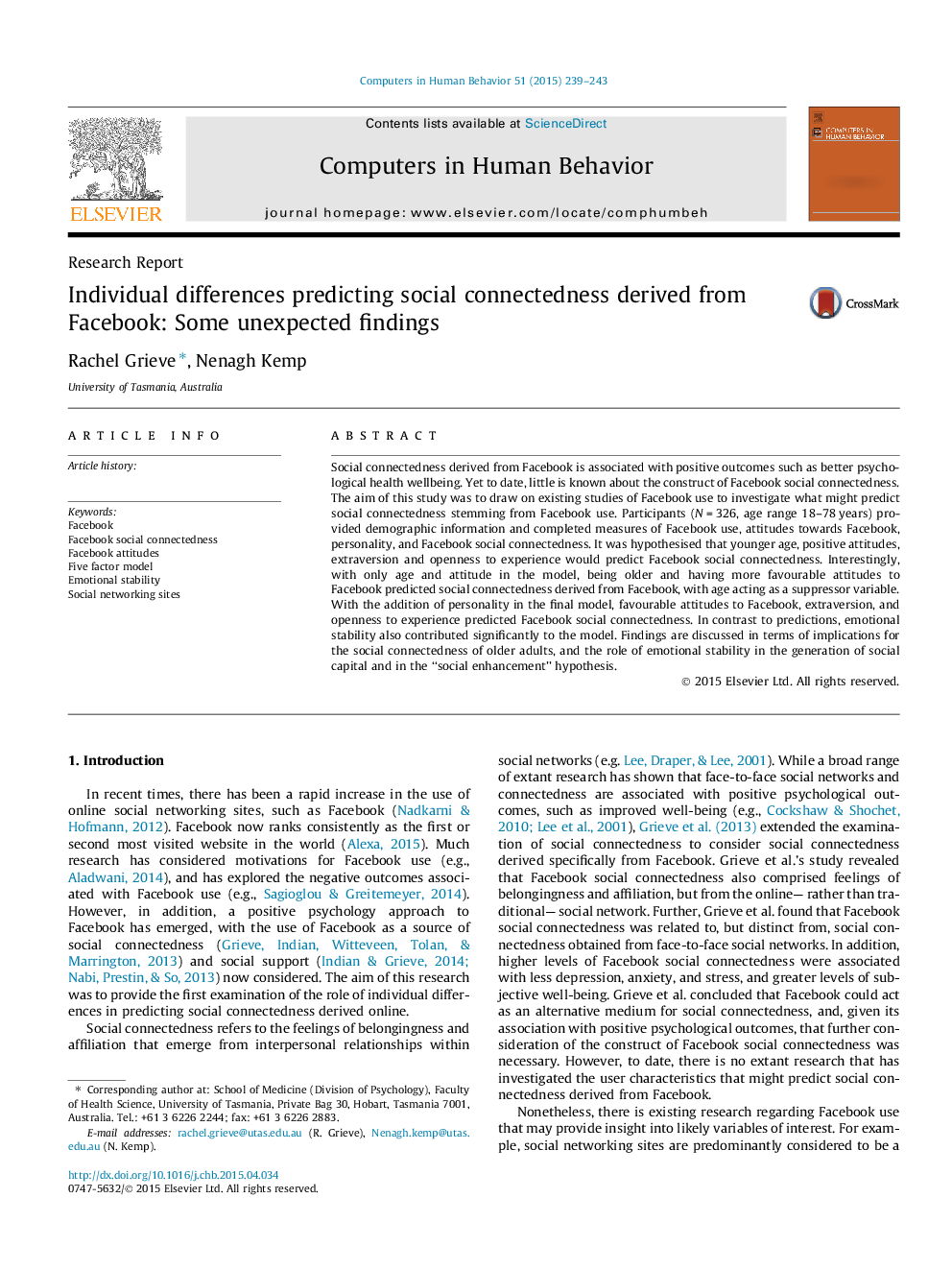| Article ID | Journal | Published Year | Pages | File Type |
|---|---|---|---|---|
| 10312559 | Computers in Human Behavior | 2015 | 5 Pages |
Abstract
Social connectedness derived from Facebook is associated with positive outcomes such as better psychological health wellbeing. Yet to date, little is known about the construct of Facebook social connectedness. The aim of this study was to draw on existing studies of Facebook use to investigate what might predict social connectedness stemming from Facebook use. Participants (NÂ =Â 326, age range 18-78Â years) provided demographic information and completed measures of Facebook use, attitudes towards Facebook, personality, and Facebook social connectedness. It was hypothesised that younger age, positive attitudes, extraversion and openness to experience would predict Facebook social connectedness. Interestingly, with only age and attitude in the model, being older and having more favourable attitudes to Facebook predicted social connectedness derived from Facebook, with age acting as a suppressor variable. With the addition of personality in the final model, favourable attitudes to Facebook, extraversion, and openness to experience predicted Facebook social connectedness. In contrast to predictions, emotional stability also contributed significantly to the model. Findings are discussed in terms of implications for the social connectedness of older adults, and the role of emotional stability in the generation of social capital and in the “social enhancement” hypothesis.
Related Topics
Physical Sciences and Engineering
Computer Science
Computer Science Applications
Authors
Rachel Grieve, Nenagh Kemp,
